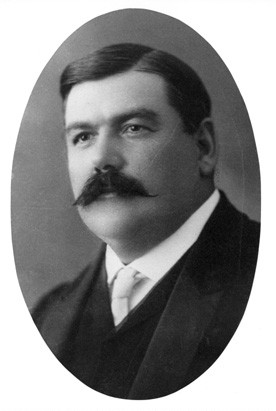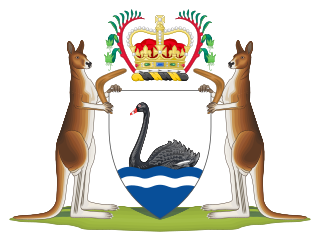Related Research Articles

Henry Daglish was an Australian politician who was the sixth premier of Western Australia and the first from the Labor Party, serving from 10 August 1904 to 25 August 1905. Daglish was born in Ballarat, Victoria, and studied at the University of Melbourne. In 1882, he worked as a mechanical engineer but soon switched to working in the Victorian public service. He first stood for election in 1896 but failed to win the Victorian Legislative Assembly seat of Melbourne South. He then moved to Subiaco, Western Australia, where he found work as a chief clerk in the Western Australian Police Department. In 1900, Daglish was elected to the Subiaco Municipal Council and in April the following year, he was elected to the Western Australian Legislative Assembly as the member for the newly created seat of Subiaco, becoming one of six Labor members in the Western Australian Legislative Assembly. The party elected him as its whip, and he resigned from the Subiaco council on 1 May 1901. On 1 December 1902, Daglish was sworn in as mayor of Subiaco, having been elected the previous month.

Sir Cornthwaite Hector William James Rason, better known as Hector Rason, was the seventh Premier of Western Australia.

Major General Sir Newton James Moore, was an Australian politician, businessman and army officer. He served as the eighth Premier of Western Australia from 1906 to 1910 and, following service in the First World War, was a member of the House of Commons of the United Kingdom from 1918 to 1932. He was the father of Sir Rodney Moore.

Frank Wilson, was the ninth Premier of Western Australia, serving on two separate occasions – from 1910 to 1911 and then again from 1916 to 1917.

John Scaddan, CMG, popularly known as "Happy Jack", was Premier of Western Australia from 7 October 1911 until 27 July 1916.
The James Ministry was the sixth Ministry of the Government of Western Australia and was led by Premier Walter James. It succeeded the Second Leake Ministry on 1 July 1902 following the death of the previous Premier, George Leake, on 24 June 1902. The Ministry relied on Independent and Labour support, and the former Ministerial faction opposing them gradually dissolved with members either associating with the new Government or sitting as independents.

John Barkell Holman was an Australian politician who served in the Western Australian Legislative Assembly from 1901 to 1921 and 1923 to 1925.
This is a list of members of the Western Australian Legislative Assembly between the 1904 elections and the 1905 elections, together known as the Fifth Parliament.
This is a list of members of the Western Australian Legislative Assembly between the 1901 election and the 1904 election, together known as the Fourth Parliament.
This is a list of members of the Western Australian Legislative Council from 30 May 1904 to 21 May 1906. The chamber had thirty seats made up of ten provinces each electing three members, on a system of rotation whereby one-third of the members would retire at each biennial election.
The Rason Ministry was the 8th Ministry of the Government of Western Australia and was led by Ministerialist Premier Hector Rason. It succeeded the Daglish Ministry on 25 August 1905 after the previous Labor minority administration fell on a vote of no confidence. On 7 May 1906, it was followed by the Moore Ministry led by Minister for Lands Newton Moore.
The Moore Ministry was the 9th Ministry of the Government of Western Australia and was led by Ministerialist Premier Newton Moore. It succeeded the Rason Ministry on 7 May 1906 after Rason resigned to accept an appointment as Agent-General for Western Australia in London. It was succeeded by the First Wilson Ministry on 16 September 1910 after Moore resigned for exactly the same reason.
The Scaddan Ministry was the 11th Ministry of the Government of Western Australia and was led by Labor Premier John Scaddan. It succeeded the First Wilson Ministry led by Ministerialist Frank Wilson on 7 October 1911 after the decisive result of the state election held four days earlier, which had produced the State's first majority Labor government.

The Minister for Education and Training is the member of the Government of Western Australia responsible for maintenance and improvement of Western Australia's system of education, and is answerable to the Parliament for all actions taken by the Department of Education under their authority. The holder of the office is usually an elected member of parliament from the ruling party or coalition, presently Tony Buti of the Labor Party.

Robert "Bob" Hastie was an Australian politician who was the first parliamentary leader of the Labour Party in Western Australia. He was a member of the state's Legislative Assembly from 1901 to 1905.
William Charles Angwin was an Australian politician who was Deputy Premier of Western Australia from 1924 until 1927, and Agent-General for Western Australia in London from 1927 until 1933. Born in Cornwall, England, he worked as a carpenter and builder before moving to Australia. He was a founding member of the East Fremantle Municipal Council and a member of the Western Australian Legislative Assembly for the Labor Party from 1904 until 1927, representing the seats of East Fremantle and North-East Fremantle.

Matthew Lewis Moss KC was a lawyer and politician who served in the Parliament of Western Australia on three separate occasions – in the Legislative Assembly from 1895 to 1897, and in the Legislative Council from 1900 to 1901 and again from 1902 to 1914. He was a minister in the governments of Alf Morgans (1901), Walter James (1902–1904), and Hector Rason (1905–1906). Moss was born in New Zealand and arrived in Western Australia in 1891. He left for England in 1914 and spent the rest of his life there, although he maintained connections with Australia, on two occasions acting as Agent-General for Western Australia.

Mathieson Harry Jacoby was an Australian politician who twice represented the seat of Swan in the Legislative Assembly of Western Australia, from 1901 to 1905 and then again from 1908 to 1911. He was Speaker of the Legislative Assembly from 1904 to 1905. Outside politics Jacoby was a noted viticulturist, one of the pioneers of the West Australian wine industry.
Michael Francis "Frank" Troy was an Australian politician who served in the Legislative Assembly of Western Australia from 1904 to 1939. A member of the Labor Party, he was the Speaker of the Legislative Assembly from 1911 to 1917, the first from that party to hold the position. Later in his career, Troy spent long periods as a frontbencher, serving as a minister in the first and second Collier governments, and then in the Willcock government. After leaving parliament, he served as Agent-General for Western Australia from 1939 to 1947.

Sir Norbert Michael Keenan QC was an Australian lawyer and politician who was a member of the Legislative Assembly of Western Australia from 1905 to 1911 and again from 1930 to 1950. He was the leader of the Nationalist Party from 1933 to 1938, during the time when it was the junior partner in the coalition with the Country Party. Keenan had earlier served as a minister in the government of Newton Moore and the second government of Sir James Mitchell.
References
- "The Political Situation". The West Australian. 11 August 1904. p. 5. Retrieved 7 March 2022– via National Library of Australia.
- "The Daglish Ministry Reconstructed". The Southern Cross Times. 10 June 1905. p. 3. Retrieved 7 March 2022– via National Library of Australia.
- Black, David; Bolton, Geoffrey (2001). Biographical Register of Members of the Parliament of Western Australia, Volume One, 1870–1930 (Revised ed.). Parliament House: Parliament of Western Australia. ISBN 0730738140.
- de Garis, Brian (1991). "Self-Government and Political Parties". In Black, David (ed.). The House on the Hill: A History of the Parliament of Western Australia 1832–1990. Perth, Western Australia: Parliament of Western Australia. ISBN 0-7309-3983-9.
- Bolton, Geoffrey; Mozley, Ann (1961). The Western Australian Legislature, 1870-1930. Canberra: Australian National University. (no ISBN)